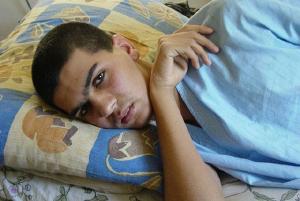Issue Date: June 20, 2003
My last visit to Iraq was August 2001, a month before the Sept. 11 attacks that would lead ultimately -- but not inevitably -- to the chaos and uncertainty unfolding there today. After eight trips to Iraq in four years, I promised myself that I would not return until Saddam Hussein was gone. In a police state with exceptional scope and a seemingly endless capacity for terror, I became increasingly concerned that my presence was bringing undue attention to those I connected with, including close friends. All my visits in those days were organized by Voices in the Wilderness, a campaign to end the economic sanctions levied against Iraq after Saddam Hussein’s brutal invasion of Kuwait in 1990. Over the years I fell in love with Baghdad, with all of its history and its enormous stamina under unthinkable pressure. And I came to know, intimately, the reach of the economic sanctions I was there to oppose. So too did I come to know the infiltrations and betrayals of a regime that, like the sanctions purportedly intended to cripple that regime, affected and often destroyed the lives of ordinary, peace-loving people. Never in my most ambitious wonderings did I expect the absence of Saddam Hussein would be predicated on an American invasion and subsequent occupation. And so it was a rather jarring experience to pass through the Jordan-Iraq border for the first time in nearly two years with the wave of a middle-aged American soldier from Miami. And what about those soldiers? I dedicate scarcely a word in my article to them. I wanted to write through the lens of Iraqis and most Iraqis keep their distance from the soldiers. Much has been written about the deadly skirmishes in Baghdad and towns across Iraq. Soldiers have fired on innocent people -- and killed them. We met a boy of 19 years; his name was Jihad and he was recovering from surgery that removed five U.S. bullets from his abdomen. He was lucky. His friend, a neighbor, was killed when the bus they were both riding in was riddled with bullets by soldiers half-hidden in grass at the side of the road. The soldiers had not signaled for the bus to stop. The bus carried the red Iraqi plates that mark all non-military transit vehicles. Did the soldiers not know this? Were the soldiers scared or did they have shoot-to-kill orders? Why no warning shot or wave? Questions have become part of the landscape in Iraq. But there is another face to the American military in Iraq. An aid worker I spoke with was surprised by the kindness of the soldiers she encountered, “They are so polite!” she exclaimed, mystified. Some Iraqi friends concurred, but with a mitigated sense of awe. A note on our decision to stay within Baghdad city limits: The situation would not look the same from Mosul in the north or Basra in the south. We could have visited the Shi’a holy city of Najaf or the Kurdish stronghold Erbil. In the end, we decided to spend our short time in the country assessing the situation, as best we could, from the country’s capital, where Saddam Hussein’s grip on the country was centralized. Any trips out of the city would have been brief and offered only a superficial understanding of a deeply complex situation. Like everything today, there is no single statement that holds true across local, tribal or religious boundaries. Any sense of joy for the removal of a tyrant was delayed by the misery of a city tired from the chaos and uncertainty that followed the invasion. Friends were not looking forward; they were cemented in the present. “There may be many opportunities to make a living in the ‘new’ Iraq,” a close friend told me late in my trip, “but you cannot live.” He is doing everything he can to leave. -- Jeff Guntzel National Catholic Reporter, June 20, 2003 |
